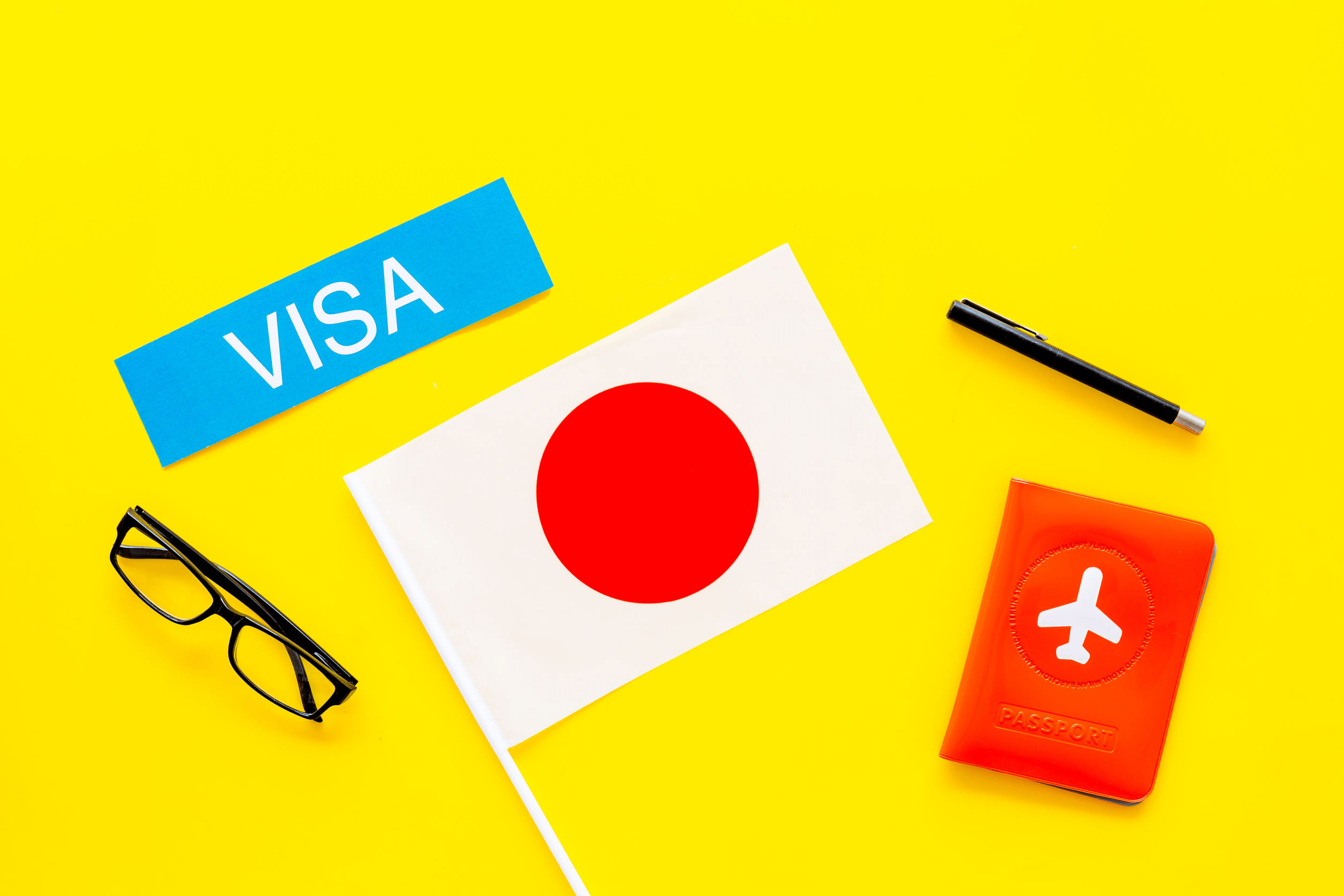Have you dreamed of getting a job in Japan someday? Foreigners looking at moving to Japan for a better lifestyle can make the process easier by knowing the Visa categories available and what they need for it. If you have the right information, applying and renewal can become really easy. Here we try to bring to you the different work visa available in Japan and what you need to do.
Types of Japan work visa
The first step for getting a job in Japan is to procure a work visa. There are around 30 types of visas that foreigners can obtain – for permanent or temporary residence in Japan. These visas are divided into 3 broad categories
- Family visas – these are granted to people with Japanese family relatives
- Non-working visas – these allow you to stay in Japan but you cannot seek employment with this visa type
- Working visas – these allow you to work in Japan and make a living
To obtain a work visa in Japan, you MUST qualify to pursue desired jobs with professional experience or relevant certifications/qualifications. So if a foreigner is applying for a skilled manual labor job, they won’t be able to get a work visa. Instead, they will have to get one of the following
- Family visa (i.e. child or spouse of Japanese national or permanent resident)
- Student visa (with a part-time job)
- Dependent visa
- Technical Intern Trainee visa
- Specified Skills Visa
Apart from that, they will also need other corresponding certificates to convert their visa to a work visa.
Available visas for technical and occupational skilled workers
Work visas are not issued to foreigners who work in unskilled jobs like construction work, waiters, hair stylist, warehouse operators etc. These workers must first obtain an invitation from the employer in order to qualify for a working visa.
The Japanese work visa for foreigners can be divided into the below main categories based on the basic work requirements
1. Skilled Labor
This class includes work in specialized fields such as chefs, architecture, jewelry making, aeronautics, foreign craftswork, engineering design etc.
To get this visa, the applicant must have 3-10 years of experience.
2. Highly skilled professional
This visa is granted to those who qualify a point-system measured based on the applicant’s educational qualifications, professional experience and income level.
3. Business managers
This visa is for those who are setting up a business in Japan or investing in a Japanese business. It also applies to those who are managing a business on behalf of other investors. The criteria for obtaining this visa is extensive. It requires an exclusive office space in Japan and an investment of at least 5 million yen. There are other requirements listed around expenses and sales as well.
4. Intra-company transferee
This is for foreigners working in Japanese companies or their subsidiaries based outside Japan. A minimum of 1 year overseas experience is required to apply for this visa.
5. Engineering, Humanities and International Services
This category includes most of the professionals – engineers, people working in the fields of Law, Social Sciences, Education, Economics or International services. Engineers and Humanities visa requires at least 10 years of experience in their field or highly advanced or specialized knowledge. For other fields, 3+ years of experience is usually sufficient. The actual requirement may vary depending on the field and area of work. It boils down to 3 qualifications
- University course in the specific field
- Special course from a Japanese vocational school
- Proof of necessary experience
Work visas are generally awarded for 1-3 years in most cases. You can acquire an extension depending on the type of visa.
When you have relations in Japan
If you have a special status or relations in Japan, this section is for you. One of the benefits permanent residents in Japan have is quick approval of work visas – because they are already aware of the Japanese culture and language. They also have a network of friends or family who can support them while they are in Japan.
Some other situations are also given a higher priority for consideration – like foreigners seeking immigrant status, especially highly-skilled professionals.
Other ways to get a work visa
If you do not fall in any of the categories mentioned above and still want to come here and get jobs in Japan, you still have other options.
1. Student visas
If you are a student and want to work in Japan, talk to a consultancy in your country and prepare for the EJU (Examination for Japanese Universities) for international students. You can come to Japan on a student visa (more information here) and start working part time. Getting a degree from a Japanese university also increases your chances of getting a work visa in Japan after your studies
2. Working holiday visa
Japan has a special Working Holiday visa (read more here) program in which 20 countries participate. If your country is one of these, you can apply for this visa. It lets you stay in Japan for up to a year while working on the side to cover travel expenses. This is a great way to understand the Japanese culture, travel to different places in Japan and experience life here, while you are on holiday.
There are certain requirements like age restrictions (18-30 years), some financial backing, good health etc that you must be aware of. But with the experience gained with this visa, it is easier to get hired in a full time job in Japan and get a work visa.
3. Technical Intern Training visa
The Technical Intern Training program was introduced by the government of Japan as a means of transferring skills and technologies developed in Japan throughout other developing nations and contribute to development of human resources.
The training period extends up to five years and consists of language training along with technical training. The training program is divided into 3 parts
- First year after entry – acquiring skills
- Second and third years – enhancement of skills
- Fourth and fifth years – proficiency of skills
Get more on the Ministry of Foreign Affair site here.
4. Specified Skills Visa (Tokutei Ginou 特定技能)
This is a new visa recently introduced (April 2019) which opens the doors for foreigners to work in 14 industries identified by the government. Unlike the other visas, where employees should hold a university degree or qualification to apply along with prior experience, Specified Skills Visa DOES NOT require a degree and the visa holder has a chance to upgrade to permanent residency in Japan.
The industries identified under this policy are
- Agriculture
- Aviation
- Building cleaning
- Construction
- Electronics & Electrical equipment
- Fishing
- Food and drink manufacturing
- Hospitality
- Industrial machinery
- Materials industry
- Nursing
- Restaurant catering/banqueting
- Ship building
- Vehicular maintenance
Some other industries are also under discussion to be included under this umbrella.
Under this policy, 2 new visa statuses were added – Specified Skills 1 and Specified Skills 2.
You need to meet certain criteria to apply for this visa. First you need some knowledge of the Japanese language and have to clear the JLPT (N4 or higher depending on the industry). Second, you need to have some level of skill in the industry you have applied for. Although the policy is not very specific on this, and it doesn’t require a decade of experience, a recognized certificate and/or at least 1-2 years of experience definitely helps.
If you are currently in Japan on the Technical Intern Training Visa, you can upgrade to the Specified Skill 1 Visa when your internship is completed and stay on in Japan.
Specified Skill 2 visa is a step up from Specified Skills 1and recognizes workers who are better experienced or highly qualified in their field. With this visa, you get some additional advantages over Specified Skills 1.
You can read more about this visa category here.
5. Tourist visa
With the introduction of Specified Skills visa (Tokutei Ginou),(More information here) another possibility that has opened up is coming to Japan on a tourist visa and working with an agency to apply for your Specified Skills visa (Tokutei Ginou). It is always good to apply for this visa with the help of an agency specializing in visa processing – either in your country or in Japan.
Conclusion
If you are looking to settle and work in Japan, choose the job that fits your purpose and matches your skills and apply for the job. Choose the correct visa type that best suits the employment and situation and apply for a work visa. With the information above, we hope we have given you enough information to head in the right direction.
Begin your journey today and come to Japan!









